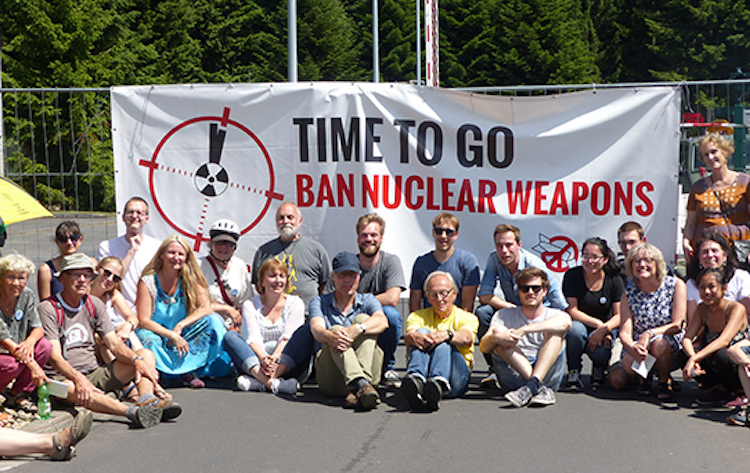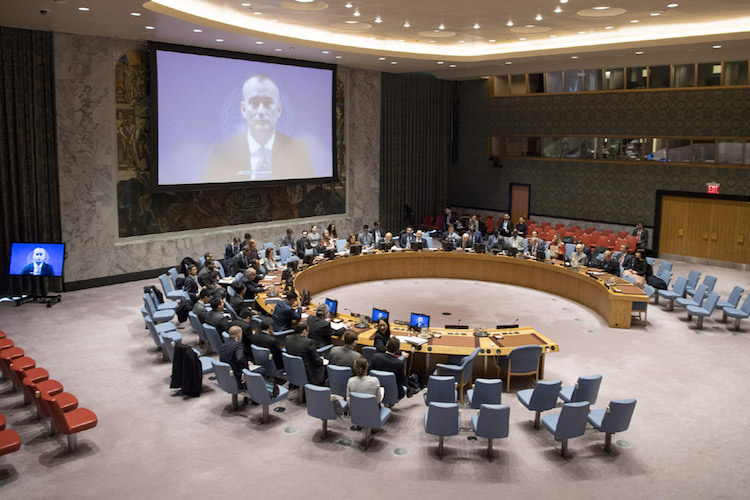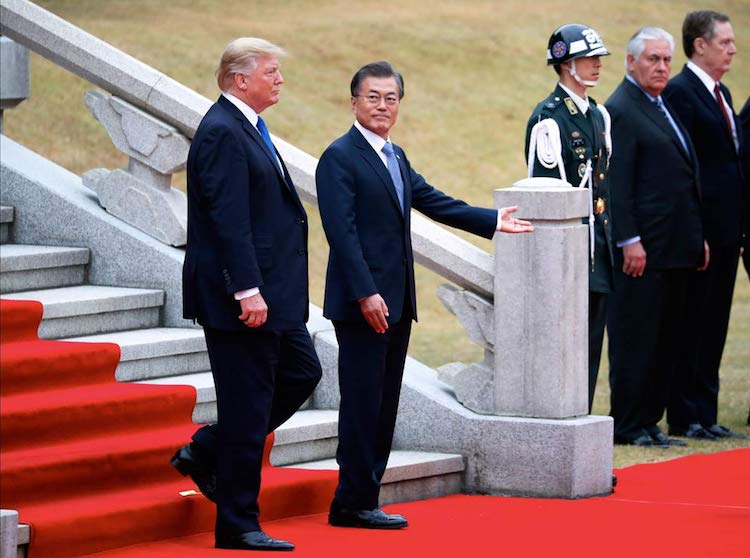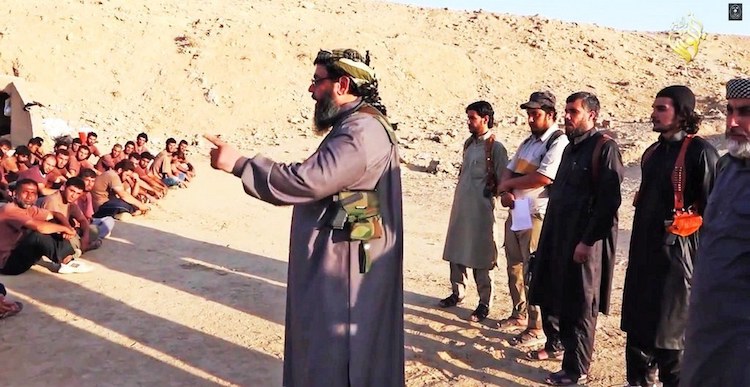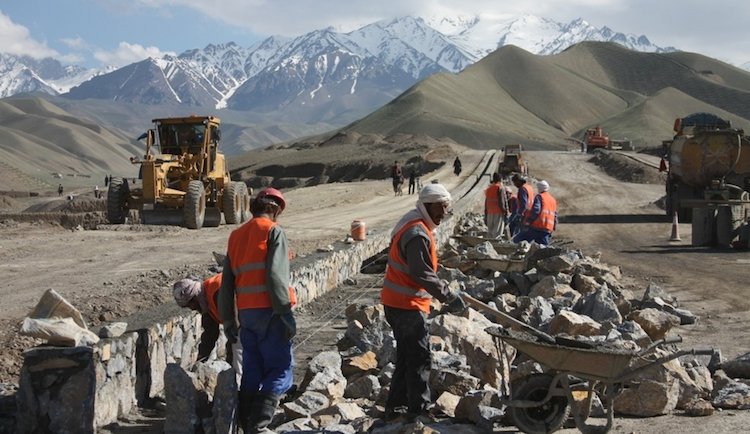Viewpoint by Phumzile Mlambo-Ngcuka The writer is UN Under-Secretary-General and Executive Director of UN Women. Following is the text of the statement titled ‘A life without the threat of violence for everyone: leave no one behind’ released on 16 November launching ‘Sixteen Days of Activism against Gender Violence‘ ahead of the International Day for the […]
Siddharth Chatterjee: UN Resident Coordinator & UNDP Resident Representative in Kenya
The Threat of a Nuclear War is Very High Today
Viewpoint by John Scales Avery John Scales Avery is a theoretical chemist noted for his research publications in quantum chemistry, thermodynamics, evolution, and history of science. Presently an Associate Professor in quantum chemistry at the University of Copenhagen, since the early 1990s, he has been an active World peace activist. During these years, he was […]
UN Envoy Expresses Hope and Concern About the Gaza Accord
By Santo D. Banerjee UNITED NATIONS (IDN) – A senior United Nations official has emphasized the urgency to resolve the humanitarian crisis in the Gaza Strip and to return the enclave to full civilian and security control of the Palestinian Authority (PA) as agreed in the Cairo accord on October 12, 2017, described as a […]
Trump’s Asian Visit Exposes U.S.-Asia Perception Gap
By Kalinga Seneviratne BANGKOK (IDN) – It is often said that since the end of the World War II, the United States has been the pre-eminent power in the Asia-Pacific region, providing the stability needed for the economic boom of the past 70 years. This perception is changing, however, and has intensified especially after U.S. […]
Religious Extremism Down The Memory Lane
Viewpoint by Jonathan Power* LUND, Sweden (IDN-INPS) – What drives people to extremes? Why do the people behind Wahhabism, Al-Qaeda or the Islamic State (IS) get so charged up and angry? Perhaps to understand we should go back to the 16th century in Europe and the furious debate about the “divine right of kings”. For […]
Religious Scholars Discuss Peace-building in Afghanistan
By J Nastranis NEW YORK (IDN) – Religious leaders came together in support of efforts to build a culture of tolerance and non-violence in Afghanistan at an event organized by the Bamyan regional office of UN Assistance Mission in Afghanistan (UNAMA). More than 30 scholars, including female scholars from different religious institutions attended the event […]
Security Council Delegation Visits Kabul Before Kazakhstan Assumes Presidency for January
By J Nastranis NEW YORK (IDN) – Kazakhstan is a non-permanent member of the UN Security Council for 2017-2018. Ambassador Kairat Umarov, the Permanent Representative of Kazakhstan to the United Nations, chairs the Council’s Committees 1988 on the Taliban movement and 1267 on ISIL (Da’esh) and Al-Qaida. Nearly two months ahead of Kazakhstan assuming the […]
COP23 Finally Provides a Platform for Indigenous People on Climate Talks
By Stella Paul BONN (IDN) – Patricia Gualinga has been coming to the UN climate change conferences for several years. She usually receives 2-3 minutes on a panel of a side event on indigenous issues during which she tells about the struggles of her community – the Kichwas of Ecuador. The struggles are, typically, of […]
Were ‘Timochenko’ to Become President of Colombia
Viewpoint by Marcelo Colussi* GUATEMALA CITY (IDN) – Rodrigo Londoño Echeverri, known by his nom de guerre ‘Timochenko’, of the Revolutionary Armed Forces of Colombia (FARC) has recently announced that he intends to run for the presidency of his country. It is difficult to predict what will happen in the next presidential elections in May […]


